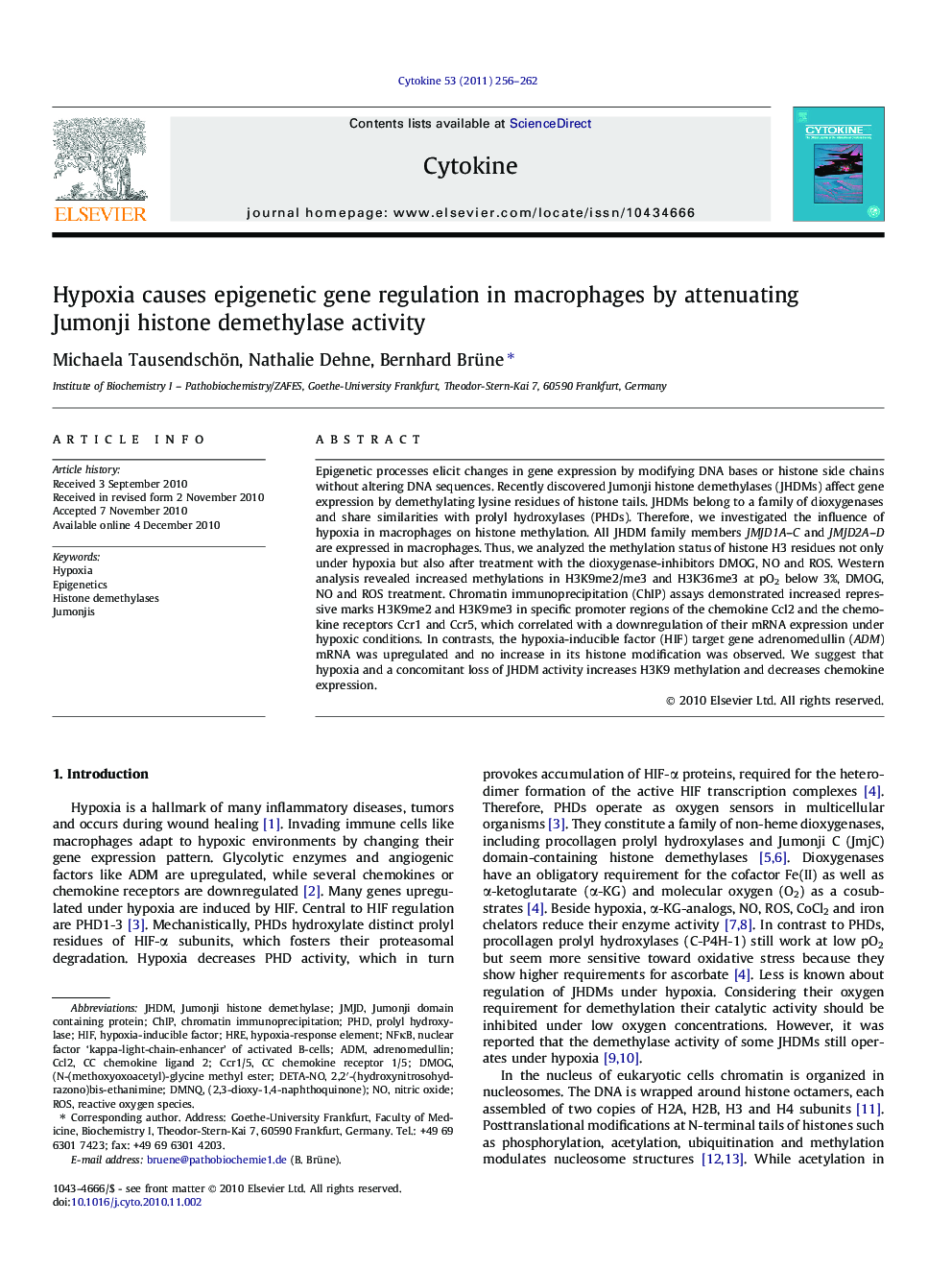| Article ID | Journal | Published Year | Pages | File Type |
|---|---|---|---|---|
| 2794826 | Cytokine | 2011 | 7 Pages |
Epigenetic processes elicit changes in gene expression by modifying DNA bases or histone side chains without altering DNA sequences. Recently discovered Jumonji histone demethylases (JHDMs) affect gene expression by demethylating lysine residues of histone tails. JHDMs belong to a family of dioxygenases and share similarities with prolyl hydroxylases (PHDs). Therefore, we investigated the influence of hypoxia in macrophages on histone methylation. All JHDM family members JMJD1A–C and JMJD2A–D are expressed in macrophages. Thus, we analyzed the methylation status of histone H3 residues not only under hypoxia but also after treatment with the dioxygenase-inhibitors DMOG, NO and ROS. Western analysis revealed increased methylations in H3K9me2/me3 and H3K36me3 at pO2 below 3%, DMOG, NO and ROS treatment. Chromatin immunoprecipitation (ChIP) assays demonstrated increased repressive marks H3K9me2 and H3K9me3 in specific promoter regions of the chemokine Ccl2 and the chemokine receptors Ccr1 and Ccr5, which correlated with a downregulation of their mRNA expression under hypoxic conditions. In contrasts, the hypoxia-inducible factor (HIF) target gene adrenomedullin (ADM) mRNA was upregulated and no increase in its histone modification was observed. We suggest that hypoxia and a concomitant loss of JHDM activity increases H3K9 methylation and decreases chemokine expression.
